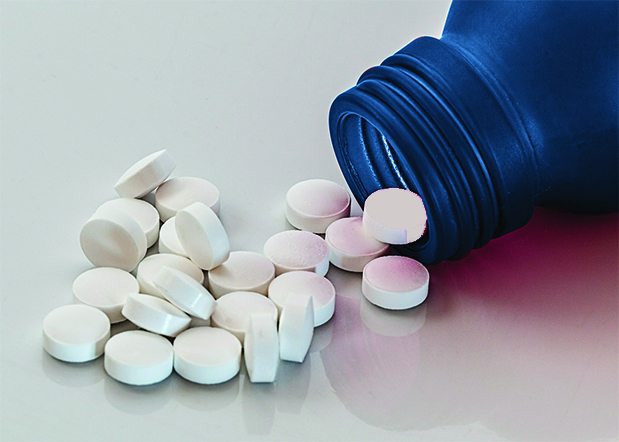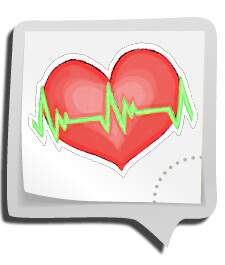
MEDICATION: AN ESSENTIAL BASIS
ANTIPSYCHOTICS
Antipsychotics are drugs that act directly on the symptoms of psychosis and initially allow the patient to reconnect with reality. They reduce anxiety and allow the patient to benefit from therapies, both with the psychiatrist and in occupational therapy with group and sports activities.
They also aim to prevent relapses and therefore the possibility of being hospitalized again. Moreover, they effectively protect patients against a second episode (relapse), as several studies have shown.
There are now new antipsychotic molecules on the market called "second generation" and "third generation" or "atypical", which cause fewer side effects than the first generation of antipsychotics, also known as "typical" or "neuroleptics". They are all effective but have different side effect profiles. In the event of side effects, in collaboration with the patient, it is possible for the doctor to change the medication or modify the dose, in order to reduce the side effects to a minimum.
Among the most prescribed for the treatment of psychosis are typical antipsychotics (older generation) and atypical antipsychotics (second and third generation, i.e. more recent).
Atypical: olanzapine (Zyprexa), risperidone (Risperdal or Risperdal Consta), aripiprazole (Abilify) and quetiapine (Seroquel). clozapine (Clozaril), ziprasidone (Zeldox), Paliperidone (Invega, Invega Sustenna) and the latest to enter the Quebec market asenapine (Saphris) and lurasidone (Latuda).
Typical: Haloperidol (Haldol, Haldol LA), Zuclopentixol (Clopixol, Clopixol-Depot), etc.
Like any medication, antipsychotics can have side effects that vary from person to person. Many people do not experience any side effects, which is the goal. Some will have it temporarily at the beginning of treatment. Sometimes, side effects may persist over the longer term and therefore an adjustment of the medication is required. Usually the side effects disappear when the treatment is stopped, but, very rarely, some movement disorders can persist even after the medication has stopped, hence the importance of maintaining a follow-up with the doctor who will be on the lookout for such side effects and adjust the treatment to avoid them.
It is clear that side effects and their management are of paramount importance in adherence to treatment.
Common effects include weight gain, especially with atypical antipsychotics, as well as some drowsiness and lack of energy. It is also possible to experience a temporary decrease in libido or to have erectile dysfunction. All these side effects are reversible when the medication is stopped. Finally, antipsychotics can sometimes trigger diabetes or a disturbance of the lipid profile (fat in the blood) in people who are "susceptible" to these health problems. Follow-up by the doctor includes monitoring these effects on metabolism.
Movement disorders, including tremors, rigidity of the arms or legs, or other problems such as akathisia ("fidgeting") may also be present, especially with first-generation antipsychotics. Adjusting the dose, taking an "antidote" medication, such as procyclidine (Kemadrin) or benztropine (Cogentin), and changing antipsychotics, can control these side effects.
These side effects should be reported to the treating physician as soon as possible so that they can make any necessary changes. However, it is imperative not to stop taking medication to control the risk of relapse, which remains high, especially during the first year.

MOOD STABILIZERS
Mood stabilizers are a class of medications that aim to stabilize mood, that is, to prevent the mood from falling into depression or rising into euphoria or elation that is not related to the events of reality. Examples of the most commonly prescribed mood stabilizers are lithium and divalproex (Epival). These molecules are very effective in preventing relapses of psychosis, but also depression and mania in bipolar disorder. They can also be used to potentiate the effect of an antipsychotic.
ANTIDEPRESSANTS
In the context of psychosis, their role is to treat the depression that can be at the root of psychosis or to accompany it and prevent a complete remission of the psychosis. Some people may need to take an antidepressant in addition to an antipsychotic medication.
The differences in the doses of the different drugs do not concern the severity of the disease.
The therapeutic doses of the different drugs are not related to the dose in milligrams (mg). For example, the usual target dose is 600 to 800 mg of quetiapine while it is 10 to 20 mg of olanzapine. The dose therefore does not indicate that the person is more or less ill. The dose will also vary depending on the individual's metabolism (e.g., how well their liver is functioning). It is important to stick to the prescribed dose and discuss with your doctor any changes you wish to make, regardless of the reason.
In addition, the mode of administration is also not related to severity. For example, the two-week to four-week phased-release injection may be more suitable for someone who frequently forgets to take their medication, while another person may prefer to take one or two doses each day in pill form.

MEDICATIONS: PRACTICAL TIPS
It's important to let your doctor know if you have any side effects. There is now a wide range of highly effective drugs with different side effect profiles. The goal of drug therapy is to find the drug that will work for you and that will cause you little or no side effects. If you are uncomfortable discussing the subject with your doctor, talk to the nurse or another person on the team.
With the information you share with them, your doctor may be able to change the doses of your medication or change the type of medication to another medication that would be effective, but with no (or much less) side effects that would bother you.
WHAT TO DO IF...
CERTAIN SUBSTANCES INTERACT WITH THE EFFECT OF MEDICATIONS:
Caffeine
Caffeine, in addition to being a stimulant substance to be consumed in moderation (e.g. 1-2 per day) can reduce the speed of elimination of certain medications. It is important to talk to your doctor about your caffeine intake (including energy drinks, tea, wake-up tablets and coffee) and to advise them of any changes to your caffeine intake. Your doctor may then change your dosage and/or suggest alternatives to side effects such as lack of energy and difficulty waking up in the morning and staying awake during the day. Energy drinks and wake-ups can be addictive and even trigger manias or psychosis. The use of "wake-ups" should therefore be banned and energy drinks should be used in moderation (1 to 2 per day in total, including other caffeine consumption).
Tobacco/cigarettes
Cigarette smoke can change the effect of your medications by affecting their metabolism (e.g., olanzapine or clozapine). If you quit smoking or increase your tobacco consumption, you should also tell your healthcare team to make sure the medication is working best and to avoid underdoses of the medication in your body. Smoke from a cannabis cigarette will have the same effect.
Over-the-counter medications and grapefruit juice
Grapefruit juice as well as the fruit itself has known effects on the metabolism of certain medications. It's best to check with your doctor or pharmacist for any interactions between medications prescribed to you (e.g., lithium) and medications you want to take over-the-counter (e.g., anti-inflammatories [Advil]) or grapefruit juice. It is acceptable to consume oranges or other citrus fruits during treatment.
Natural products and other substances
Caution should be exercised when consuming natural health products, as some can trigger certain mental health problems in at-risk individuals (e.g., St. John's Wort). It is always important to speak to your primary care physician if you wish to consume any natural product or medications/substances.